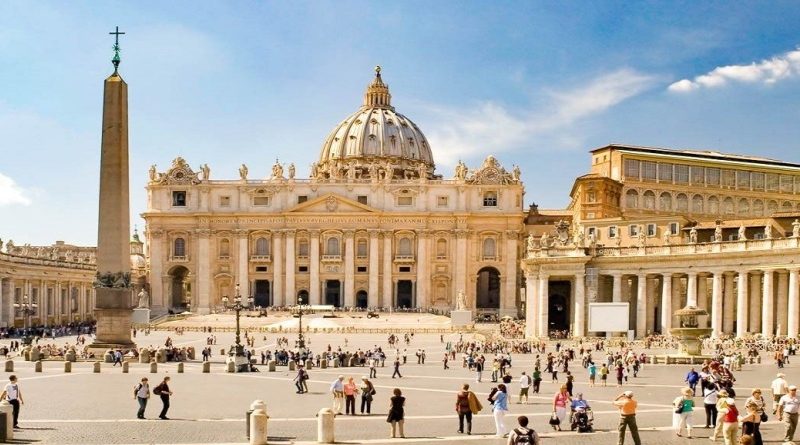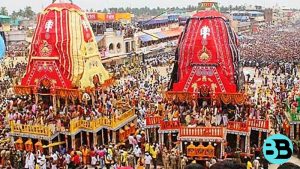Vatican City A Fascinating and Unique Nation-State
Vatican City is the smallest fully independent nation-state in the world, with a total area of just 44 hectares (110 acres) and a population of around 800 people. This tiny city-state is located entirely within the city of Rome, Italy, and is the spiritual and administrative center of the Roman Catholic Church. Despite its small size, Vatican City has a rich history and culture, and it plays a significant role in global affairs, both religiously and politically. In this essay, we will explore the fascinating and unique characteristics of Vatican City, including its history, government, culture, and influence on the world stage.
History of Vatican City
The history of Vatican City dates back to the founding of the Roman Catholic Church, which is said to have been established by Jesus Christ in the 1st century AD. Over the centuries, the Church grew in influence and power, and in the 4th century AD, the Emperor Constantine declared Christianity the official religion of the Roman Empire. In the following centuries, the Church became a major political and cultural force in Europe, and the Pope emerged as the spiritual leader of the Christian world.
In the 8th century, the Pope became the ruler of a small territory in central Italy known as the Papal States, which he governed as a temporal power. This state continued to exist until the 19th century when Italy was unified and the Papal States were incorporated into the new nation. However, the Pope remained the spiritual leader of the Catholic Church, and in 1929, a new treaty was signed between the Vatican and Italy, which recognized the independence and sovereignty of the Vatican City State.
Government of Vatican City
Vatican City is a unique nation-state with a government that is unlike any other in the world. The Pope is both the spiritual leader of the Catholic Church and the head of the state of Vatican City. He is elected by the College of Cardinals, which is composed of the highest-ranking officials of the Church and serves for life or until he resigns.
The Pope exercises his authority over the Church through a complex bureaucracy of offices and departments, collectively known as the Roman Curia. This bureaucracy is responsible for overseeing the administration of the Church, including its finances, diplomatic relations, and the selection of new bishops and cardinals.
In addition to the Pope, Vatican City has a separate legislative body, the Pontifical Commission for Vatican City State. This commission is composed of cardinals appointed by the Pope and is responsible for creating laws and regulations for the city-state.
Culture of Vatican City
Vatican City is home to some of the world’s most significant cultural and artistic treasures. The city-state is filled with magnificent churches, museums, and monuments, many of which date back to the Renaissance period. One of the most famous landmarks in Vatican City is St. Peter’s Basilica, which is the largest church in the world and is considered a masterpiece of Renaissance architecture.
The Vatican Museums are also a major attraction, and they contain an enormous collection of art and artifacts from around the world. The museums are particularly famous for their extensive collection of Renaissance and Baroque art, including works by Michelangelo, Raphael, and Botticelli.
In addition to its cultural treasures, Vatican City is also a center of religious pilgrimage and tourism. Millions of people from around the world visit the city-state each year to attend Mass at St. Peter’s Basilica, participate in papal audiences and ceremonies, and view the many religious artifacts and relics housed in the Vatican’s museums.
Influence of Vatican City on Global Affairs
Despite its small size, Vatican City wields significant influence in global affairs, both religiously and politically. As the spiritual leader of the Catholic Church, the Pope holds a prominent position in the religious world. The Pope has significant influence over the beliefs and practices of the Catholic Church, which has over 1.2 billion members worldwide. The Pope is also respected and recognized by leaders of other religions, as well as by non-religious leaders, for his moral and ethical leadership on issues such as human rights, social justice, and environmental stewardship.
The Vatican also plays a crucial role in international diplomacy, as the Pope is recognized as a head of state and maintains diplomatic relations with over 180 countries worldwide. The Vatican’s diplomatic activities are conducted through the Holy See, which is the central governing body of the Catholic Church and acts as the Pope’s diplomatic arm. The Holy See has observer status at the United Nations and participates in international conferences and negotiations on a wide range of issues, from peace and security to human rights and development.
Political Influence
Vatican City’s political influence is more limited than its religious influence, but it still plays a role in shaping global politics. The Pope and the Vatican have been involved in numerous political issues throughout history, including supporting various political movements and advocating for peace and justice.
In recent years, the Vatican has taken an active stance on issues such as climate change, immigration, and income inequality. Pope Francis, who was elected in 2013, has been particularly vocal in advocating for these issues and has been praised by many for his progressive views on social and economic justice.
The Vatican has also been involved in efforts to promote peace and reconciliation in conflict zones around the world. The Pope has been involved in mediation efforts in numerous conflicts, including the Israeli-Palestinian conflict and the civil war in Syria.
Challenges and Controversies
Despite its many contributions to the world, Vatican City has faced numerous challenges and controversies throughout its history. One of the most significant challenges has been the issue of sexual abuse by clergy members of the Catholic Church. This issue has been a source of great controversy and criticism, and the Vatican has been criticized for its handling of the issue.
Vatican City has also faced criticism for its treatment of women and its stance on social issues such as homosexuality and birth control. Some have criticized the Vatican for being out of touch with modern values and for failing to adapt to changing social norms.
Conclusion: Vatican City is a fascinating and unique nation-state with a rich history, culture, and influence on the world stage. Despite its small size, Vatican City plays a significant role in global affairs, both religiously and politically. Its cultural and artistic treasures are admired by millions of people around the world, and its leadership on issues such as human rights and environmental stewardship is widely respected. While it has faced challenges and controversies, Vatican City remains a symbol of the enduring influence of the Catholic Church and its value
Read also:
Vatican City





